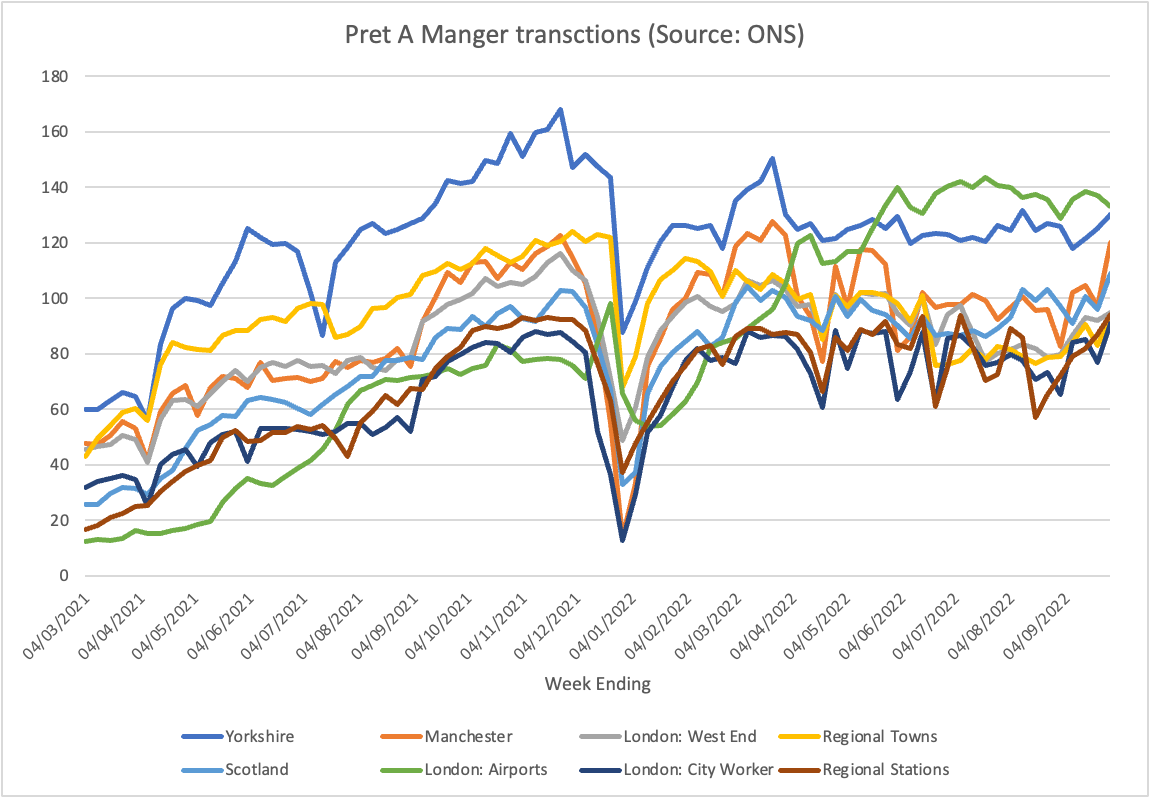Back to the office...
Staff return to offices + Podcast bonus content + Other stories that matter
Hello everyone and welcome to the latest edition of Off to Lunch. Apologies, today’s edition is slightly shorter than initially planned as I have been wiped out by a nasty bug over the last 48 hours. There is bonus content from episode two of our Business Studies podcast below for paying members as well as the usual round-up of other stories that matter. Please sign-up if you haven’t already, it’s just £6-a-month or £50-a-year and you will get full access to Friday’s newsletter as well as our Sunday press review and more.
Episode three of our Business Studies podcast will launch on Monday and features an interview with Humphrey Cobbold, chief executive of Pure Gym, Britain’s largest gym chain, on how his business survived and then bounced back from the Covid-19 crisis, when all its sites had to close.
First though, some quick thoughts on some interesting data. I track the Office for National Statistic’s update on real-time indicators on economic and social change every week because they offer a great insight into what is going on in the UK. I have been paying particularly close attention to it since the start of September to look at whether more people are going back to the office. Anecdotally, business leaders have been saying to me that more people have come back since the end of the summer holidays and that offices and train stations are the busiest they have been since the start of the Covid-19 crisis. However, over the last month it has been difficult to see this in any data because the readings have been skewed by the death of Queen Elizabeth II, the period of mourning and the bank holiday. This week’s data, though, suggests that more people are indeed going back to the office, particularly in London…
The ONS has been tracking weekly transactions at 400 Pret A Manger shops around the UK and these are a useful indicator of people going back to the office post-Covid. This is because many of Pret’s customers are commuters or office workers getting their lunch. London has consistently lagged other parts of the UK in this index, supporting other data that office workers in the UK capital have been slower to return. This is partly to do with London having a larger proportion of the workforce in professional services than other cities. Well, the Pret index for the week to September 29 (last week) shows that transactions at its shops in the City of London hit 91 per cent of their pre-Covid level, the highest recorded by the survey since it began in early 2021.
At the start of 2021 this index was in the 30s for Pret’s City of London shops and at the start of 2022 it was in the 50s and 60s. Transactions in Scotland also hit their highest level record so far in the new data - 109 per cent - while regional stations (those outside London) hit their joint-highest of 94 per cent and London stations hit their second-highest reading of 105 per cent. Manchester, suburban London and London airports were also not far off their highest readings…
I have included the graph on the data below. The colour code is at the bottom. Of particular interest are those spikes you can see at the far right. I will revisit this data in next week’s ONS update to see if this is sustained…
Podcast bonus content…
Episode two of our Business Studies podcast featured an interview with Jacek Olczak, chief executive of Philip Morris International, on his “beyond nicotine” strategy and the £1.1 billion takeover of UK pharmaceutical group Vectura. It was a fascinating conversation on a controversial topic - smoking, cigarettes and the role tobacco companies should or should not play in trying to eradicate smoking. Thank you to everyone who has been in touch with their own views. It is clear that people are really enjoying hearing business leaders talk in this format and in such depth. It is also clear that there are plenty of questions for the tobacco industry - specifically for new vaping businesses that are emerging around the world, targeting teenagers and younger people, and operating under less scrutiny than public companies like Philip Morris.
If you haven’t listened to the episode yet you can do so here on Substack, here on Apple, and here on Spotify. If you enjoyed it, please share it with others or leave a review - it really helps. If you didn’t enjoy it, please get in touch and let me know why. All feedback is crucial to keep making the podcast better and better!
As mentioned in the podcast, I also asked Jacek Olczak about Philip Morris’s controversial approach to its Russian business, the answers that he gave on this are below…






